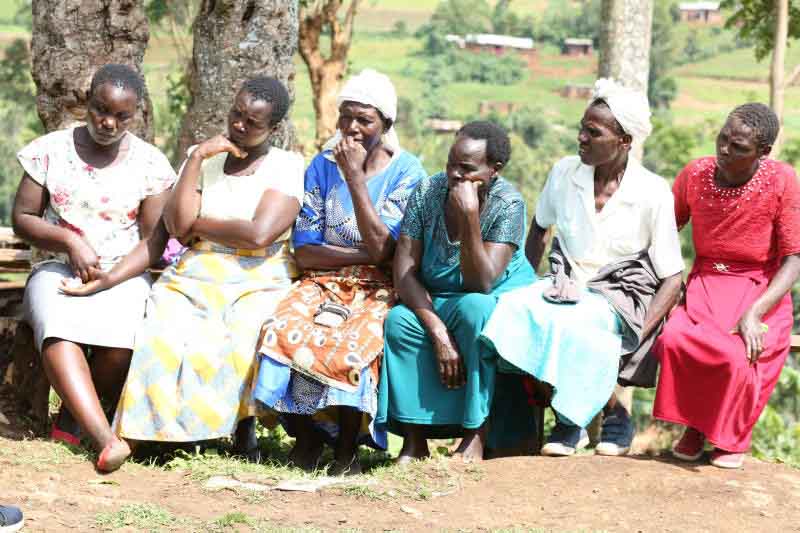×
The Standard e-Paper
Home To Bold Columnists

Kabero widows whose husbands were killed by the military during their operation while they were fighting Saboat land defense force militia in Mt Elgon in 2008. [Benjamin Sakwa, Standard]
Memories of the April 16, 2008 events at Kabero village in Mount Elgon are still fresh in Eunice Chesori’s mind.